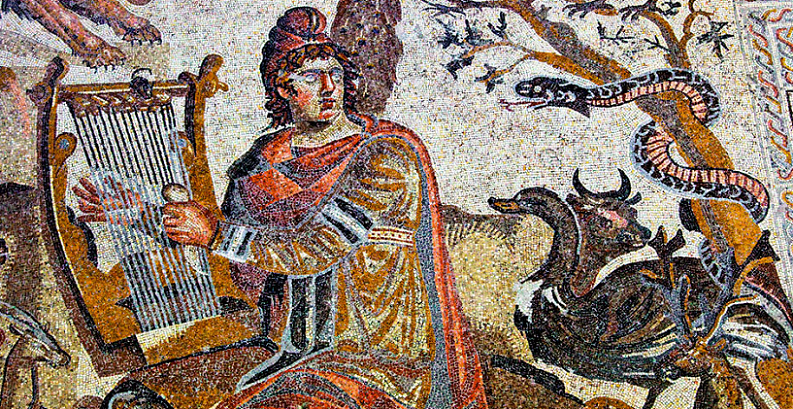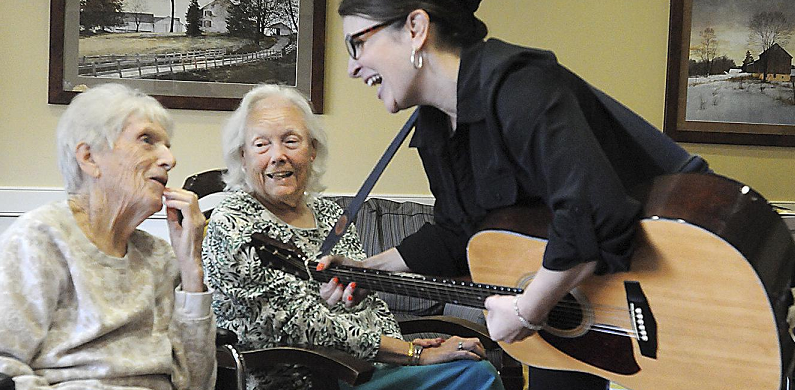
Since ancient times, music has been more than just a source of entertainment; it has been a powerful tool for healing and emotional well-being. From the tranquil melodies of ancient China to the rhythmic harmonies of Greek philosophers, music therapy has a rich and varied history, deeply rooted in the belief that music can profoundly affect the human mind and health. In this journey through history and science, we explore how ancient civilizations utilized music as a therapeutic tool, and how modern science is uncovering the neurological underpinnings of this ancient wisdom.
Contents
Historical Overview of Music Therapy
The journey of music therapy, an ancient practice, extends far back into human history, traversing diverse cultures and civilizations.
Origins of Music Therapy in Ancient Cultures
Music therapy’s roots can be traced to the dawn of civilization. Ancient societies, recognizing the profound impact of music on the human psyche, incorporated it into their rituals and healing practices. For instance, in ancient Mesopotamia, music was used in temples to promote spiritual healing. Similarly, in indigenous cultures around the world, music played a central role in ceremonial healing practices, often intertwined with the community’s spiritual beliefs and rituals.
Evolution of Music Therapy Practices
As civilizations advanced, so did their understanding and application of music therapy. In ancient Egypt, music was an integral part of medical practice. Priests, who were also healers, used chants and instrumental music to cure ailments, believing in the magical properties of musical tones.
The evolution of music therapy can also be seen in the writings of ancient scholars. For example, the Greek philosopher Pythagoras, known for his mathematical contributions, also delved into the realm of music therapy. He proposed the concept of “musical medicine,” suggesting that certain melodies and rhythms could bring the soul into harmony, promoting physical and mental well-being.
Historical Beliefs about Music and Healing
Throughout history, various beliefs have underpinned the use of music in healing. In ancient Greece, philosophers like Plato and Aristotle discussed the effects of music on emotions and character. They believed that music had the power to influence one’s ethos, or character, and could be used therapeutically to restore balance and harmony within the individual.
The ancient Chinese, on the other hand, based their musical therapy on the philosophy of Yin and Yang and the Five Elements. They believed that music, aligned with these natural principles, could help balance the body’s energies and promote healing [1].

Music Therapy in Ancient Civilizations
The application of music therapy in ancient civilizations was not only widespread but also diverse in its methods and beliefs. Each culture had its unique approach to integrating music into healing practices, reflecting their understanding of health and the cosmos.
Egyptian Practices and Beliefs Regarding Music and Healing
In ancient Egypt, music therapy was deeply intertwined with spiritual and physical healing. The Egyptians believed in the power of music to ward off evil spirits and cure diseases. Priests, who were also the healers, often used vocal and instrumental music in their healing rituals.
They believed that certain melodies and rhythms had the power to penetrate the deepest layers of the soul, promoting health and well-being. Instruments like the harp, lyre, and flute were commonly used in these therapeutic sessions, and hymns dedicated to gods and goddesses were believed to have potent healing properties [2].
Greek Philosophies on Music and the Mind
The Greeks made significant contributions to the field of music therapy, with their philosophers providing a more systematic approach to its practice. Central figures like Plato and Aristotle discussed at length the psychological and physiological effects of music.
They theorized that music had the power to influence emotions and even alter behavior, making it a potent tool for mental and emotional healing. The concept of “musical ethos” suggested that different modes or scales in music could induce different emotional states, a principle used to treat various ailments, from anxiety to physical pain.
Ancient Chinese Principles of Music and Healing
In ancient China, music therapy was grounded in the principles of harmony and balance, reflecting the core Taoist and Confucian philosophies. The Chinese believed that music had the power to harmonize the body’s qi, or life force, thereby promoting health.
The pentatonic scale, central to Chinese music, was thought to correspond with the five elements — wood, fire, earth, metal, and water — and thus, aligning music with these elements was considered crucial in restoring balance within the body and the universe. Instruments like the guqin, a seven-stringed zither, were often used in therapeutic settings for their calming and harmonizing effects [3].
Music Therapy Contributions from Other Ancient Cultures
Beyond Egypt, Greece, and China, many other ancient cultures recognized the therapeutic value of music. In India, the raga system of classical music was believed to have specific healing properties, with certain ragas prescribed for particular times of day or seasons, aligning with the body’s rhythms and nature’s cycles. Indigenous tribes in the Americas used drumming and chanting as a means of healing, both physically and spiritually, connecting individuals to a higher state of consciousness.

The Science Behind Music and Memory
In recent years, scientific research has begun to unravel the mysteries behind the ancient practice of music therapy, particularly its impact on memory and cognitive functions.
How Music Affects the Brain
Music’s influence on the brain is both profound and multifaceted. Neuroscientific studies have shown that listening to music activates various brain regions, including those associated with emotion, sensory processing, and cognitive function. The limbic system, which is involved in emotional processing, and the hippocampus, crucial for memory formation, are particularly responsive to musical stimuli. This engagement of multiple brain areas suggests why music can evoke strong emotions and vivid memories [4].
Neurological Studies on Music and Memory Recall
The relationship between music and memory is an area of intense study in neuroscience. Research indicates that music can enhance memory recall, especially in individuals with cognitive impairments such as Alzheimer’s disease. One notable phenomenon is the ‘music-evoked autobiographical memory,’ where certain pieces of music can trigger vivid recollections of past events. This effect is attributed to the strong emotional and associative connections that music creates, essentially ‘encoding’ memories more robustly in the brain.
Music as a Tool for Cognitive Enhancement
Beyond memory recall, music therapy has shown promise in cognitive enhancement, particularly in the areas of attention, executive function, and cognitive flexibility. Structured music therapy sessions have been found to improve attention and concentration, likely due to the required mental engagement when processing musical patterns and rhythms. Additionally, learning to play a musical instrument has been associated with improved executive function, including problem-solving skills and cognitive flexibility, as it demands coordination, planning, and adaptability.
Modern Applications of Ancient Music Therapy
While ancient music therapy practices were grounded in spiritual and philosophical beliefs, modern applications blend these age-old techniques with contemporary scientific understanding.
Revival of Ancient Music Techniques in Modern Therapy
In recent years, there has been a resurgence of interest in ancient music therapy techniques, with practitioners seeking to incorporate these time-tested methods into modern therapeutic frameworks. For instance, the rhythmic and repetitive aspects of traditional drumming used in indigenous cultures are being employed in modern therapy sessions to reduce stress and enhance cognitive function. Similarly, the use of specific musical scales and modes, as practiced in ancient Greece and India, is being explored for their effects on mood regulation and cognitive stimulation [5].
Case Studies and Success Stories Involving Music Therapy
Numerous case studies and success stories highlight the effectiveness of these integrated approaches. For example, music therapy has shown significant benefits in dementia care, helping improve the mood, behavior, and even cognitive functions of patients. In one notable case, a dementia patient who was typically non-responsive began to engage and communicate after regular music therapy sessions, demonstrating the profound impact of music on memory and cognitive engagement.
Incorporating Ancient Music Therapy in Contemporary Cognitive Health Programs
Contemporary cognitive health programs are increasingly recognizing the value of music therapy. Many programs now include music therapy as a core component, especially in settings like nursing homes, rehabilitation centers, and mental health clinics. These programs often combine elements of ancient music therapy, like the use of specific musical compositions and rhythms, with modern therapeutic techniques, such as guided imagery and relaxation exercises. This integrative approach not only honors the historical roots of music therapy but also maximizes its benefits by aligning it with current scientific understanding and therapeutic practices.
References
[1] Memory and Music Therapy
[2] The effect of music therapy on cognitive functions in patients with Alzheimer’s disease
[3] The Origins and Usage of Music Therapy in Ancient Greece
[4] Music as therapy in early history
[5] History of Music Therapy

